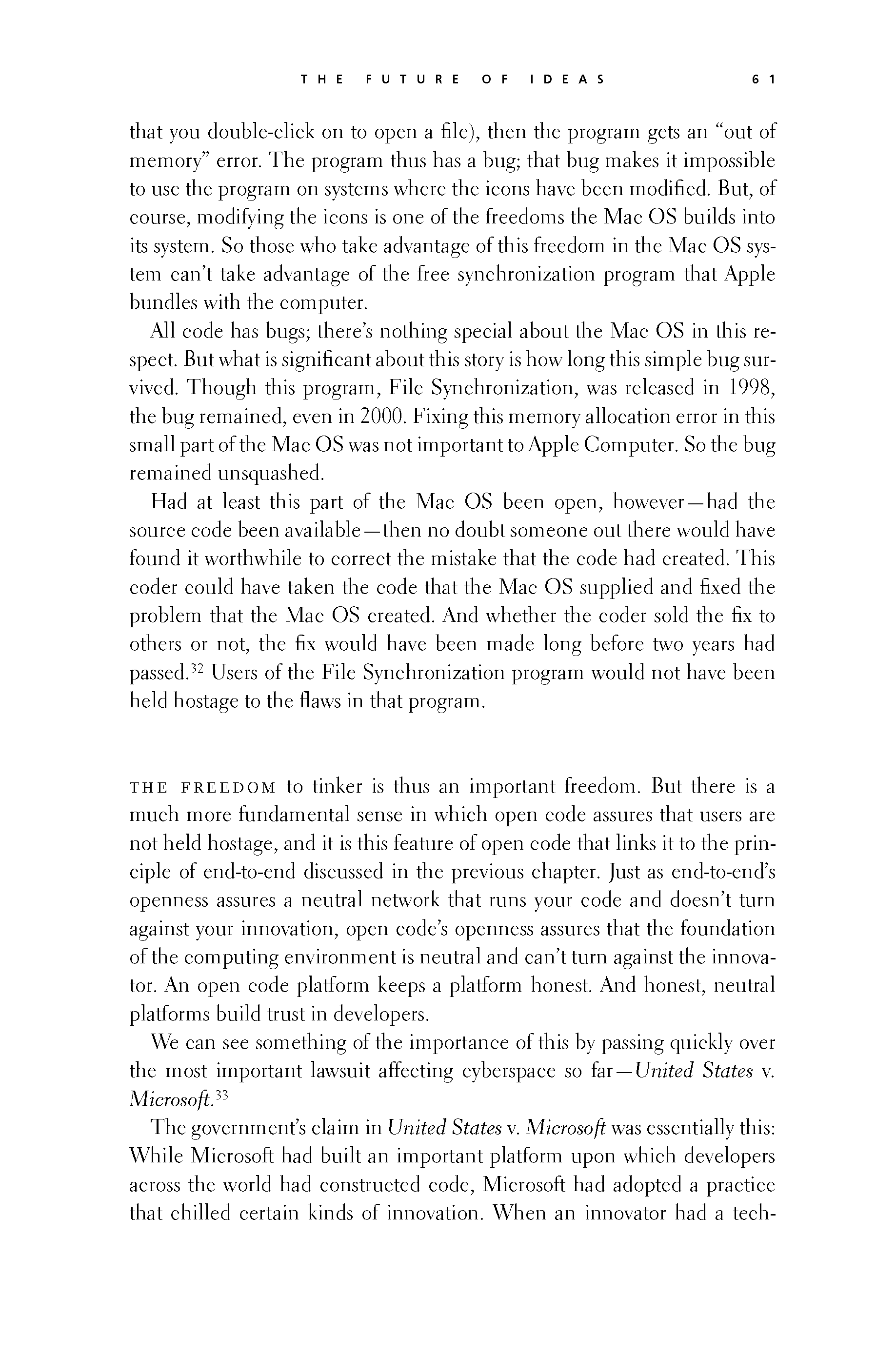 p060 _
-chap- _
toc-1 _
p061w _
toc-2 _
+chap+ _
p062
p060 _
-chap- _
toc-1 _
p061w _
toc-2 _
+chap+ _
p062
that you double-click on to open a file), then the program gets an "out of
memory" error. The program thus has a bug; that bug makes it impossible
to use the program on systems where the icons have been modified. But, of
course, modifying the icons is one of the freedoms the Mac OS builds into
its system. So those who take advantage of this freedom in the Mac OS sys-
tem can't take advantage of the free synchronization program that Apple
bundles with the computer.
All code has bugs; there's nothing special about the Mac OS in this re-
spect. But what is significant about this story is how long this simple bug sur-
vived. Though this program, File Synchronization, was released in 1998,
the bug remained, even in 2000. Fixing this memory allocation error in this
small part of the Mac OS was not important to Apple Computer. So the bug
remained unsquashed.
Had at least this part of the Mac OS been open, however -- had the
source code been available -- then no doubt someone out there would have
found it worthwhile to correct the mistake that the code had created. This
coder could have taken the code that the Mac OS supplied and fixed the
problem that the Mac OS created. And whether the coder sold the fix to
others or not, the fix would have been made long before two years had
passed.[4-32] Users of the File Synchronization program would not have been
held hostage to the flaws in that program.
///\\\
The freedom to tinker is thus an important freedom. But there is a
much more fundamental sense in which open code assures that users are
not held hostage, and it is this feature of open code that links it to the prin-
ciple of end-to-end discussed in the previous chapter. Just as end-to-end's
openness assures a neutral network that runs your code and doesn't turn
against your innovation, open code's openness assures that the foundation
of the computing environment is neutral and can't turn against the innova-
tor. An open code platform keeps a platform honest. And honest, neutral
platforms build trust in developers.
We can see something of the importance of this by passing quickly over
the most important lawsuit affecting cyberspace so far -- _United_States_ v.
_Microsoft_.[4-33]
The government's claim in _United_States_ v. _Microsoft_ was essentially this:
While Microsoft had built an important platform upon which developers
across the world had constructed code, Microsoft had adopted a practice
that chilled certain kinds of innovation. When an innovator had a tech-
[[61]]
p060 _
-chap- _
toc-1 _
p061w _
toc-2 _
+chap+ _
p062